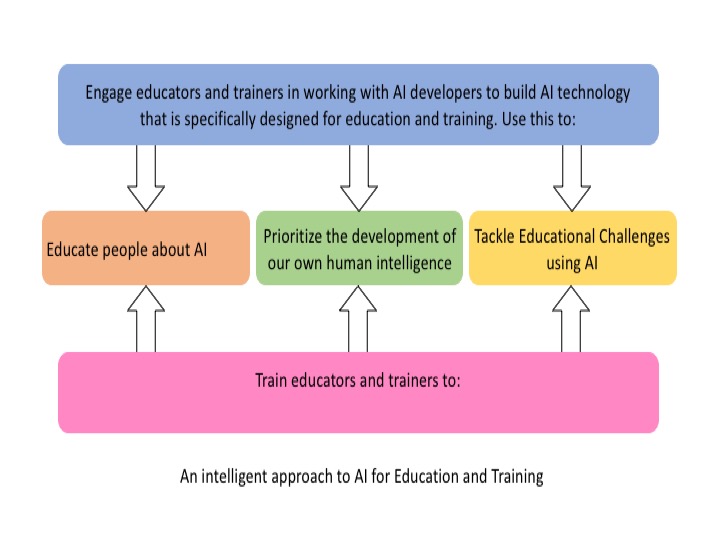by Rose Luckin
University College London
Rose Luckin will be presenting a webinar, Machine Learning andHuman Intelligence: The Future of Education in the 21st Century, on Wednesday, March 20, 2019 from 1:00 PM-2:00 PM Eastern Time and Thursday, March 21, 2019 from 1:00 PM-2:00 PM Eastern Time.
The rapid progress of Machine Learning AI that has been built in our human image brings into stark relief the need for us to re-conceptualise Human Intelligence (HI) for an AI augmented world. We have built smart machines in our own intelligent image and these machines can now complete some of the intelligent activities that have traditionally been valued in our education systems, such as passing exams through memorizing and applying knowledge. Now is the time when we must agree on what we want from our HI, how best this HI can work with AI, how AI and HI should complement each other and as a consequence what new knowledge and skills we must focus our attention upon. This is the key step we need to take if we wish to make informed decisions about the existing knowledge and skills that will remain important in our future AI augmented society, and to differentiate these from the knowledge and skills that we no longer need to attend to within our education and training systems. The beauty of the current situation is that because we have built highly sophisticated AI that can learn, we have also built AI that can help us develop far more sophisticated HI.

In my 2018 book, and in my upcoming webinar, I offer an alternative way of
I argue for 7 highly connected and interwoven elements to human intelligence:
- Knowledge and understanding about the world – Interdisciplinary Academic intelligence.
- The ability to interact effectively with other people and to develop an awareness of and the ability to regulate our own social interactions: Social Intelligence.
- An understanding of what knowledge is, what it means to know something, what good evidence is and how to make judgements based on that evidence and our context: Metaknowing intelligence.
- The ability to interpret our own ongoing mental activity: interpretations that need to be grounded in good evidence about our contextualized interactions in the world. Includes regulation skills: Metacognitive intelligence.
- The ability to understand and regulate our emotional and our motivational self-knowledge and regulatory skills; our ability to recognize our emotions and the emotions of others; to regulate our emotions and behaviours with respect to other people and with respect to taking part in a particular activity: Metasubjective intelligence.
- The ability to understand the way in which our physical embodiment interacts with our environment, its resources and with other people; includes physical intelligence; our intellectual bridge to our instinctive mental processes; will help us to recognize when we are biased and when we are succumbing to post-hoc rationalization: Meta-contextual intelligence.
- An accurate evidence based judgement about ourselves: our knowledge and understanding; our emotions and motivations and our personal context. We need to know our ability to succeed in a specific situation and to accomplish tasks both alone and with others. This is the most important element of human intelligence and it is highly connected to all the other elements: Accurate Perceived Self-efficacy.


